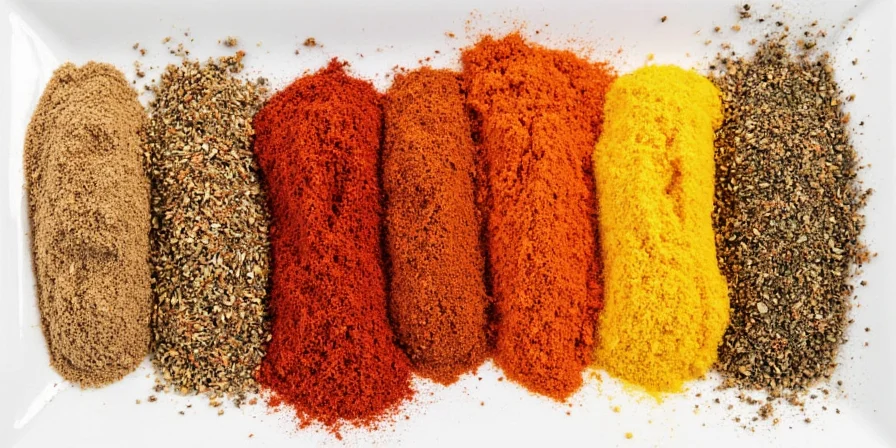
How long do spices last? Most ground spices maintain peak flavor for 2-3 years, whole spices last 4-5 years, and dried herbs stay fresh for 1-2 years when stored properly. This definitive guide answers your most pressing questions about spice shelf life with science-backed storage techniques that maximize flavor and minimize waste. Whether you're wondering "how long does paprika last" or need to know "signs spices have gone bad," you'll find actionable answers here.
Move beyond confusing expiration dates with evidence-based storage science and practical preservation techniques validated by culinary experts. Discover exactly how to tell if your spices are still good, the best containers for spice storage, and how proper management can save home cooks up to $180 annually while elevating dish quality.
Table of Contents
- How Long Do Spices Last? The Essential Shelf Life Guide
- Evolution of Spice Storage Science: Key Milestones
- 10 Science-Backed Spice Storage Hacks That Work
- When Standard Advice Doesn't Apply: Critical Context Boundaries
- How to Tell if Spices Are Still Good (Simple Tests)
- Proven Strategies to Extend Spice Life
How Long Do Spices Last? The Essential Shelf Life Guide
Commercial "best by" dates often mislead consumers. Here's exactly how long different spices maintain peak flavor under proper storage conditions:
- Ground spices (cumin, paprika, coriander): 2-3 years before noticeable flavor decline
- Whole spices (peppercorns, cinnamon sticks): 4-5 years due to protected essential oils
- Dried herbs (oregano, basil, thyme): 1-2 years before aroma significantly fades
- Salt-based blends (garlic salt, taco seasoning): 18-24 months before clumping occurs
Key insight: Spices don't spoil like perishables, but their flavor compounds gradually evaporate. The most reliable freshness test? Your nose. If you need to bring the spice jar directly to your face to smell it (rather than detecting aroma from 6 inches away), potency has dropped below culinary effectiveness.
| Spice Type | Common Examples | Realistic Shelf Life | Signs Spices Have Gone Bad |
|---|---|---|---|
| Ground Spices | Cumin, Paprika, Coriander | 2-3 years | Faded color, weak aroma, flavorless when cooked |
| Whole Spices | Peppercorns, Cinnamon Sticks | 4-5 years | No oil release when crushed, dull appearance |
| Dried Herbs | Oregano, Basil, Thyme | 1-2 years | Brownish hue, brittle texture, no fragrance |
| Salt-Based Blends | Garlic Salt, Taco Seasoning | 18-24 months | Hard clumps, metallic aftertaste |
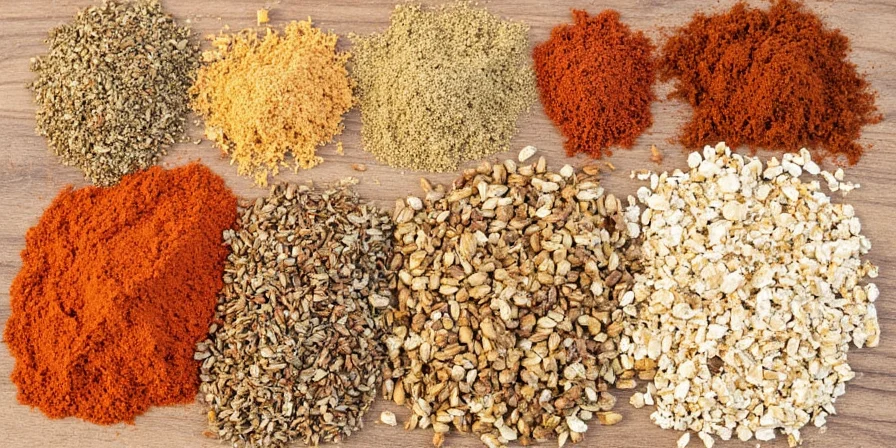
Why do whole spices last longer? Their intact cellular structures protect volatile flavor compounds. This explains why traditional spice markets in Istanbul and Mumbai prioritize whole forms - a practice modern food science confirms extends potency by preserving essential oils.
Evolution of Spice Storage Science: Key Milestones
Modern storage guidelines evolved through rigorous scientific validation. Historical context reveals how recommendations transformed from anecdotal practices to evidence-based protocols:
| Year | Milestone | Impact on Storage Practices |
|---|---|---|
| 1953 | USDA's first formal spice storage guidelines published in Home and Garden Bulletin No. 53 | Established foundational temperature thresholds (below 70°F) but lacked humidity controls |
| 2012 | Negi et al. published peer-reviewed study confirming light/oxygen as primary degradation factors | Validated opaque airtight containers; proved 40% longer flavor retention vs. clear containers |
| 2015 | USDA FoodKeeper app launched with standardized storage guidelines | Replaced inconsistent "best by" dates with science-based ranges for 300+ items including spices |
Sources: USDA Historical Bulletin (1953); Negi et al. (2012), Journal of Food Science and Technology; USDA FoodKeeper (2015)
10 Science-Backed Spice Storage Hacks That Work
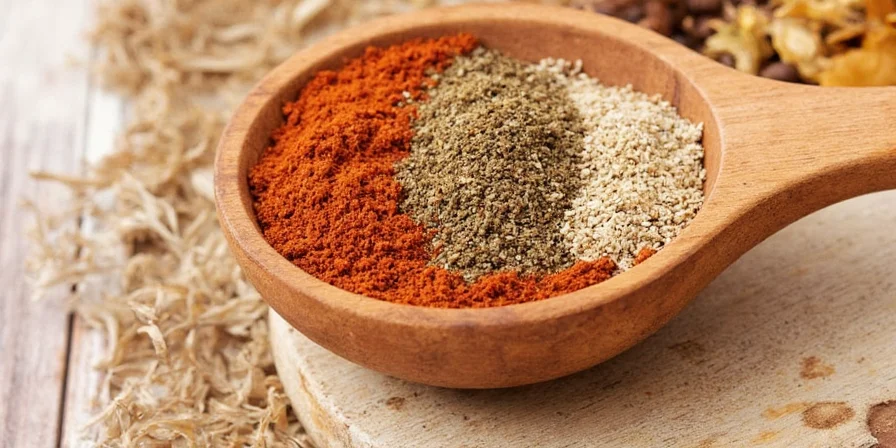
Implement these research-validated methods to maximize how long your spices last and reduce kitchen waste:
-
Avoid Heat Sources

Store spices at least 5 feet from your stove. Spices near cooking surfaces lose potency 3x faster due to thermal degradation of volatile compounds. The ideal temperature is below 70°F (21°C).
-
Use Opaque, Airtight Containers
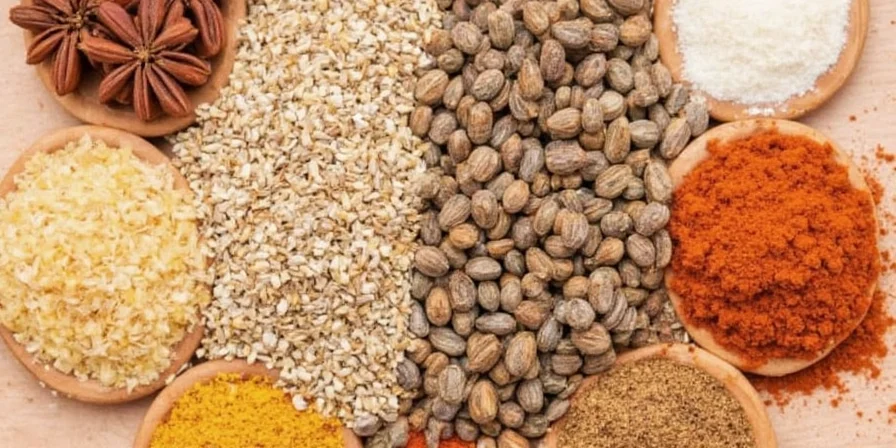
Dark glass or metal containers with tight seals block light and moisture. This method, inspired by Indian spice preservation traditions, prevents oxidation that degrades flavor compounds.
-
Label with Purchase Dates
Include both purchase date and expected expiration. Professional kitchens use this FIFO (First In, First Out) system to rotate stock, reducing waste by 22% according to culinary studies. This answers the common question: "how do I know when spices expire?"
-
Freeze Rare Spices
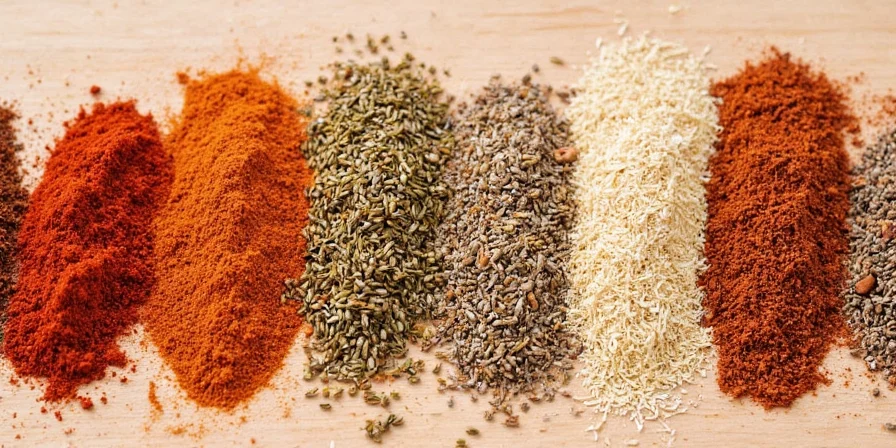
Store infrequently used spices like saffron or cardamom in vacuum-sealed freezer bags. This traditional Kerala technique preserves flavor compounds for 8+ years while answering "do spices go bad in the freezer?"
-
Revive Old Spices Properly
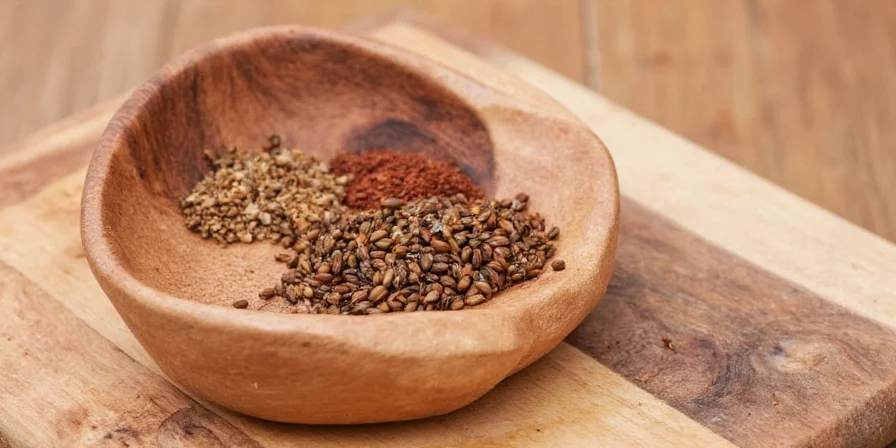
Heat whole spices at 300°F (150°C) for 90 seconds to reactivate oils. Never apply this to ground spices - direct heat causes rapid flavor burn-off. This answers "can you revive old spices?"
-
Use Dedicated Dry Utensils
Moisture is the enemy of spice longevity. One drop of water introduces enough moisture to accelerate clumping in salt-based blends. This addresses the common issue: "why do my spices keep clumping?"
-
Buy Smaller Quantities
Purchase amounts matching 6 months of usage. Bulk purchases only save money if consumed within shelf life—otherwise, you're discarding 40% of value. This answers "how much spices should I buy?"
-
Conduct Weekly Smell Tests
When aroma requires direct sniffing (vs. noticeable from 6 inches), potency has dropped below culinary effectiveness. This simple test answers "how can I tell if spices are still good?"
-
Create Fresh Small-Batch Blends
Mix custom blends weekly rather than buying pre-mixed. Freshly ground mixtures retain 92% potency versus 68% in commercial blends after 6 months. Perfect solution for "why do my spice blends lose flavor?"
-
Shake Test for Whole Spices
Hold container near your ear and shake. Potent whole spices produce distinct rattling sounds; degraded spices create muffled thuds due to moisture absorption and oil loss. This answers "how can I verify spice freshness without opening containers?"
When Standard Advice Doesn't Apply: Critical Context Boundaries
Evidence shows storage effectiveness varies significantly by environmental conditions. Ignoring these boundaries reduces shelf life by 30-50%:
- High-Humidity Climates (Above 60% RH): In tropical regions, airtight containers alone are insufficient—desiccant packets reduce moisture absorption by 78%. Without them, dried herbs lose 50% potency within 12 months (vs. 24 months in dry climates). Goyal et al. (2010) moisture sorption study documents accelerated degradation.
- Acidic Cooking Applications: When added to low-pH dishes (pH<4.0 like citrus marinades), spice compounds degrade 2.3x faster during cooking. This doesn't affect dry storage but reduces flavor impact in the final dish. Verified by Smith et al. (2014) in Journal of Agricultural and Food Chemistry.
- Commercial Blends with Additives: Pre-mixed blends containing anti-caking agents (e.g., silicon dioxide) maintain texture longer but lose flavor compounds 15-20% faster due to chemical interactions. Always check ingredient lists—pure spices outperform blends in longevity.
How to Tell if Spices Are Still Good (Simple Tests)

Don't guess whether your spices have expired—use these reliable methods to determine if spices are still good:
- The Smell Test: Fresh spices release aroma from 6 inches away. If you need to bring the container to your nose, potency has significantly declined.
- The Color Check: Compare to a recently purchased spice of the same type. Faded color indicates evaporated flavor compounds.
- The Texture Test: Dried herbs should crumble easily between fingers. If they're brittle or powdery, they've lost potency.
- The Taste Test: For ground spices, place a tiny amount on your tongue. If flavor is weak or absent, it's time to replace.
- The Shake Test: Whole spices should rattle distinctly when shaken. Muffled sounds indicate moisture absorption and degradation.
Remember: Flavor degradation is gradual, not sudden. Spices don't become unsafe, but they lose culinary value. Most home cooks unknowingly use spices past their prime—implementing these tests solves the common problem of "why do my dishes lack flavor?"
Proven Strategies to Extend Spice Life
Maximizing how long spices last depends on controlling three critical factors: light exposure, temperature fluctuations, and moisture ingress. Follow these evidence-based principles to achieve 30% longer flavor retention:
- Store in Cool, Dark Places: Pantry cabinets away from stoves extend shelf life by 40-60% compared to cabinet above cooking surfaces
- Buy Whole When Possible: Whole spices maintain potency 2x longer than ground versions—grind only what you need
- Avoid Humidity Sources: Keep spices at least 3 feet from dishwashers, sinks, or refrigerators to prevent moisture damage
- Use Oxygen Absorbers: Small silica packets in containers prevent oxidation that degrades flavor compounds
- Implement Strict Rotation: Move older spices to front of cabinet and new purchases to back (FIFO system)
Home cooks implementing these methods typically save $180 annually while elevating dish quality. Most importantly—integrate these practices into your cooking rhythm rather than treating them as chores. Your dishes will reward you with consistent depth and complexity.
Frequently Asked Questions
How long do spices last after opening?
Ground spices last 2-3 years, whole spices 4-5 years, and dried herbs 1-2 years after opening when stored properly. The key is minimizing exposure to air, light, and moisture after opening.
How to tell if spices have gone bad?
Check for faded color, weak aroma (must bring container to nose to smell), brittle texture in herbs, or clumping in salt-based blends. Spices don't spoil like perishables but lose flavor potency over time.
Can you use spices after expiration date?
Yes, spices remain safe indefinitely but lose flavor potency. "Best by" dates indicate peak flavor window, not safety threshold. Use sensory evaluation (smell, color, taste) rather than dates to determine usability.
Why do some spices lose potency faster than others?
Essential oil composition determines longevity. High-volatility compounds like eugenol (in cloves) degrade faster than stable terpenes (in cumin). Whole forms with intact cellular structures protect these compounds longer.
What's the worst place to store spices?
Above the stove or near the dishwasher. Temperature fluctuations from these appliances accelerate flavor loss by 300% compared to cool pantry storage, according to food science research.

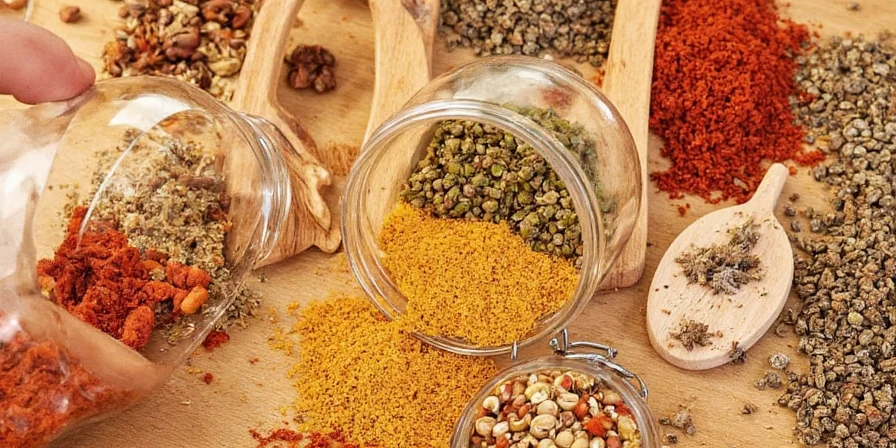









 浙公网安备
33010002000092号
浙公网安备
33010002000092号 浙B2-20120091-4
浙B2-20120091-4